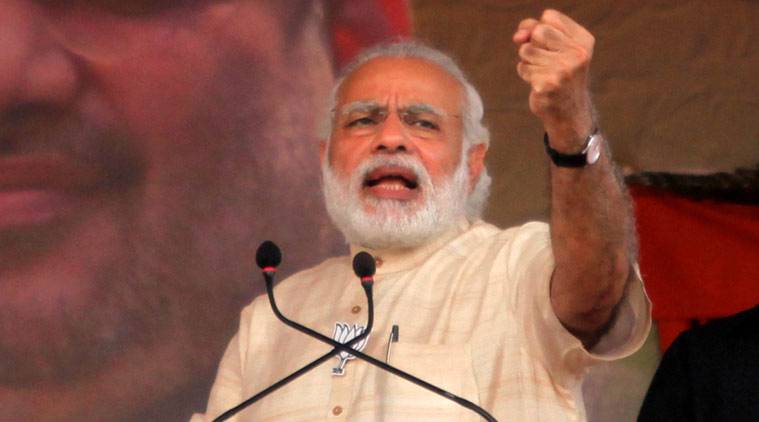Prime Minister Narendra Modi is apparently not as charming as he thinks, and India is not as desirable. Despite his last minute world tour to win support for India’s bid to become a member of the Nuclear Suppliers Group (NSG), PM Modi failed to secure the backing of a number of nations.
Opposition leaders in India, like Delhi’s Chief Minister, Arvind Kejriwal demanded that Modi explain what he did on his trips abroad, tweeting, “PM Modi has completely failed on foreign policy front.” The Congress Party Vice President Rahul Gandhi, mocked Modi, tweeting, “NSG: How to lose a negotiation by Narendra Modi #FailedModiDiplomacy.” And Congress Party’s Chief Spokesman Randeep Singh Surjewala also tweeted that Modi’s “dramatization of diplomacy is isolating India.”
This is clearly a major setback for India and Modi, because he failed to convince world leaders that India’s NSG membership application was worth supporting. However, the decision not to admit India as a member to the NSG had no real impact on India’s ambitions for its civil nuclear program. India already enjoys an exemption from key NSG rules and engages in nuclear commerce with thirteen states – a clear example of horizontal proliferation. But by stressing the importance of the Nuclear Nonproliferation Treaty as an essential requirement for NSG membership, the group reaffirmed its commitment to nonproliferation, saving the regime some grace. The decision proved that the NSG is unwilling to compromise on its basic principles—a welcome declaration for nonproliferation advocates.
US Senator Ed Markey, who had opposed India’s bid from the start, and even voiced his concerns in Congress last month, said in a statement to the press, “the Nuclear Suppliers Group reaffirmed its strong support for the Nuclear Non-Proliferation Treaty by refraining from admitting India.” The Senator also said that “the NSG was founded in response to India’s 1974 nuclear test and it has worked for decades to prevent the sharing of technology that could contribute to the further spread of nuclear weapons.”
The rejection of India’s NSG membership bid has provided an incentive for the country to deliver on its previous commitments made to the Bush administration in exchange for the U.S.-India 2008 Civil Nuclear Agreement. India must prove that it is a responsible nuclear state by separating its civil and military nuclear facilities, bringing all civil facilities under International Atomic Energy Agency safeguards, committing to the Comprehensive Test Ban Treaty, taking steps to reduce its weapons stockpile, and stopping all production of weapons-grade fissile material. If India demurs from taking such commitments, NSG should also consider rescinding its waiver to India, as it has allowed the country to vertically proliferate, as clearly apparent from the recent revelation that India is constructing a secret city dedicated solely to producing thermonuclear weapons.
If trade was its only interest, India should not worry about indecision on its membership application. It is quite apparent that New Delhi needs membership for status - indirect recognition as a nuclear power. The group realizes that and seems to stand up to its core non-proliferation principles. Trade is quite different from legitimizing a non-NPT state in the regime. The least NSG should do is to come up with a criteria based approach to membership for non-NPT nuclear weapon states.
It is clear that India is interested in becoming a member of the NSG, and as an advanced nuclear technology state, it should. NSG member states understand that a criteria-based approach must be developed to address potential future NSG membership for states outside of the NPT.
A uniform criterion for all non-NPT states seems the only workable option to deal with them and balance the nuclear disorder. A consistent, criteria-based approach is much better than making exceptions for individual states. It lessens the chance of unjust discrimination, enabling any state that meets the criteria laid out by the NSG to be welcomed into the group. According to Pakistan’s Adviser to the Prime Minister on Foreign Affairs, Sartaj Aziz, “If the group forms such a uniform criteria (sic), then Pakistan has stronger credentials for NSG membership than India.”
NSG has actually moved a wee bit towards redemption by avoiding haste in considering India’s application. Once it has build consensus on criteria, it would be easier to decide the merits of the cases. The NSG set an excellent precedent for global nuclear norms by denying India membership. Despite pressure from the Obama administration, that wants to return Indian favors and build presidential legacy, the group chose to remain true to its principles. This at the end of the day is a colossal victory for the nonproliferation regime.
A shorter version of this article was originally published by The Stimson Center’s South Asian Voices blog.






